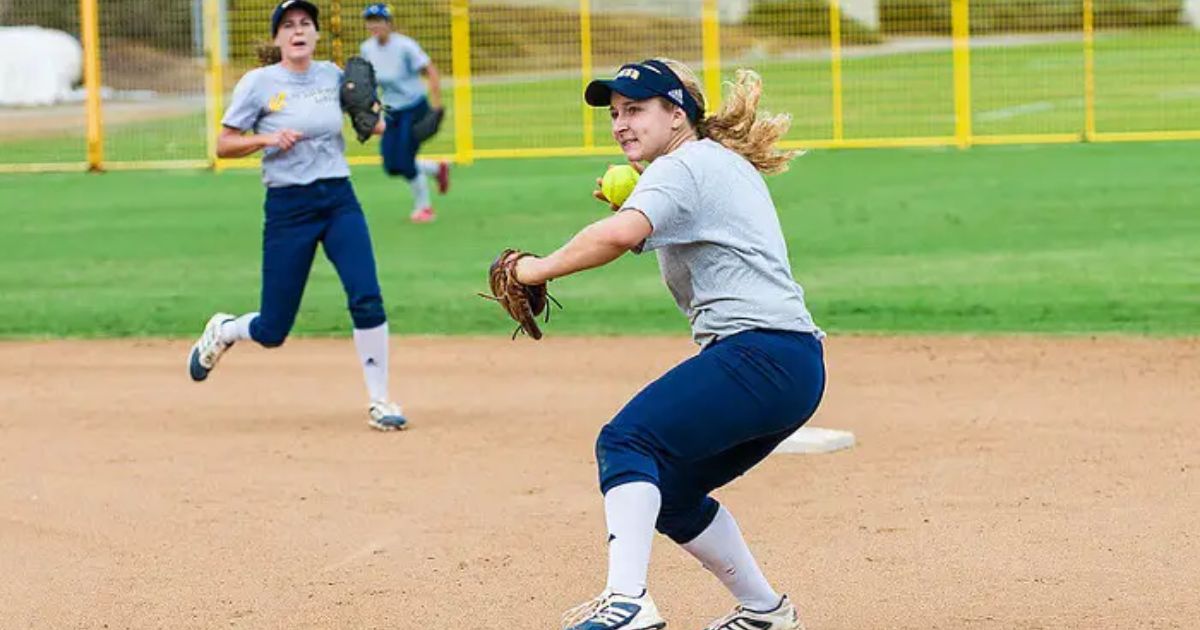In softball, the term “utility” refers to a versatile player who is skilled in multiple positions on the field. A utility player is not limited to a specific position, providing valuable flexibility for the team. Such players are adept at both infield and outfield positions, allowing coaches to strategically place them where their skills are most needed during a game.
Curious about the game-changing role of utility players in softball? Uncover the secrets behind these multifaceted athletes and gain insights into the strategic advantages they bring to the game. Let’s explore the dynamic realm of utility players and their pivotal role in shaping the outcome of softball matches.
Utility in softball goes beyond just fielding versatility; it extends to the player’s batting skills as well. A utility player is not only proficient in various defensive positions but also excels at the plate, contributing offensively to the team’s success. In this article, we’ll unravel the layers of utility in softball, showcasing how these players become indispensable assets for their teams. Join us on a journey through the world of softball utility players.
Understanding Utility in Softball
Utility in softball refers to a player’s ability to perform competently in multiple positions on the field, showcasing versatility beyond a specialized role. Unlike players who focus on excelling in one specific position, utility players are valued for their adaptability and skill diversity.
They possess the capacity to seamlessly transition between various roles, contributing significantly to the team’s success. Understanding utility in softball involves recognizing the strategic advantage these players bring to a roster. Coaches often rely on utility players to fill gaps in the lineup, adjust to changing game situations, and provide flexibility in team composition.
Defining Utility Players in Softball
Utility players are defined by their capability to play different positions in softball with competence and effectiveness. These players are not confined to a single role; instead, they serve as valuable assets capable of assuming responsibilities across the field.
Typically, a utility player has a well-rounded skill set, excelling in both offensive and defensive aspects of the game. They may be proficient at playing various infield and outfield positions, offering coaches the flexibility to adapt their lineup based on specific matchups or game scenarios.
Importance of Utility Players in Softball Teams
The importance of utility players in softball teams cannot be overstated. These players play a pivotal role in the team’s success by providing a safety net for unforeseen circumstances. Injuries, tactical changes, or specific match-ups may necessitate quick adjustments, and utility players are the linchpin for such scenarios.
Their ability to seamlessly transition between positions ensures that the team can maintain a high level of performance, irrespective of the challenges that may arise during a game. Furthermore, the presence of utility players adds depth to the team, allowing coaches to field lineups that exploit the weaknesses of the opposing team.
Skills and Attributes of a Utility Player in Softball
The skill set of a utility player in softball is characterized by its breadth and depth. These players need to excel in various aspects of the game, including hitting, fielding, and base running. A keen understanding of different positions is crucial, along with the ability to make quick decisions under pressure.
Their mental resilience is tested as they switch between positions, contributing to the team’s success without a fixed and predictable role. Coaches value players with these multifaceted skills, as they not only enhance the team’s performance but also serve as inspirational figures for their dedication to the game.
Strategies for Deploying Utility Players in Softball Games
Strategically deploying utility players in softball games requires a deep understanding of both the team’s dynamics and the strengths of individual players. Coaches must assess the opponent’s weaknesses and the unique skills each utility player brings to the table.
it’s using a player’s agility in the outfield, their strong arm in the infield, or their batting prowess, effective deployment involves capitalizing on these strengths to gain a competitive edge. Successful strategies for deploying utility players involve a delicate balance of foresight, adaptability, and a thorough understanding of the team’s overall goals.
Challenges Faced by Utility Players in Softball

Utility players in softball face a unique set of challenges that stem from the demanding nature of their role. Juggling multiple positions requires not only physical prowess but also mental agility. These players must be adept at quickly switching mindsets and adjusting their play style based on the demands of the position they find themselves in.
The pressure to consistently perform at a high level, regardless of the specific role they undertake, can be mentally taxing. Moreover, the uncertainty of their playing time and positions adds an extra layer of challenge, demanding a resilient mindset and a commitment to continuous improvement.
Training and Development for Utility Players in Softball
The training and development of utility players in softball require a comprehensive approach that hones their skills across various positions. Coaches focus on refining not only the fundamental skills that are universally important but also position-specific nuances.
Training regimes often include scenario-based drills that simulate game situations, allowing utility players to practice quick decision-making and adaptability. Strength and conditioning programs are tailored to ensure these players maintain peak physical fitness, essential for enduring the demands of a versatile playing role.
Evolution of the Utility Role in Softball
The utility role in softball has evolved significantly over the years, reflecting changes in the game’s strategies and the expectations placed on players. Initially, players were often specialized in one position, but as the sport progressed, the value of versatility became increasingly apparent.
The modern utility player is not just a substitute for specific situations; they are integral components of a team’s tactical arsenal. As softball strategies have become more sophisticated, the utility player’s role has expanded to encompass a broader range of responsibilities.
The evolution of the utility role is indicative of a paradigm shift in how teams approach the game, recognizing the strategic advantage offered by players capable of seamlessly transitioning between positions. This evolution speaks to the adaptability of both players and coaches in responding to the ever-changing landscape of softball competition.
How does utility impact team strategy in softball?
Having a utility player allows teams to adapt quickly to game situations by deploying them in various positions as needed.
Are utility players common in softball?
Yes, utility players are valued for their versatility and are common in softball to enhance team dynamics.
Can a utility player specialize in a specific position in softball?
While utility players are versatile, they often have a primary position where they excel while maintaining skills in other areas.
Conclusion
The concept of utility in softball plays a pivotal role in enhancing team dynamics and performance. A utility player, often regarded as a versatile asset, possesses the ability to contribute effectively in various positions on the field.
Understanding the utility of a player involves recognizing their multifaceted skills and how these skills can be strategically employed to meet the team’s specific needs. In essence, utility in softball is not just about individual proficiency but also about the collective benefit it brings to the team, fostering a more well-rounded and adaptable roster.








